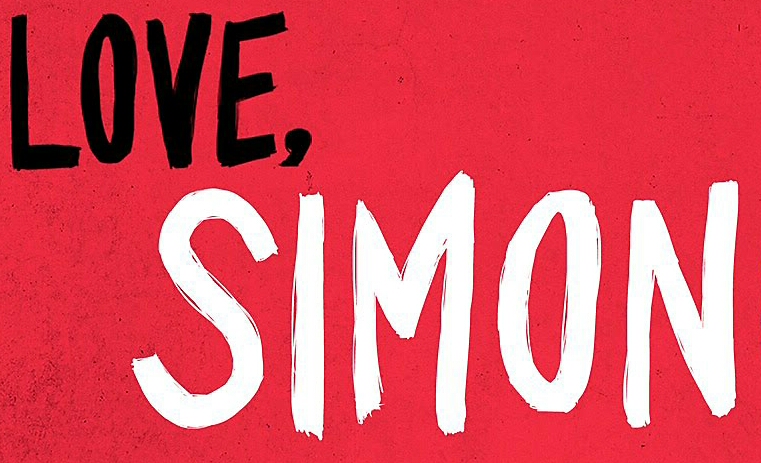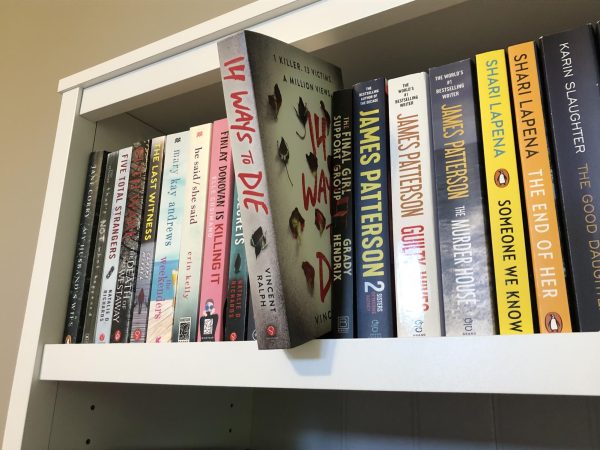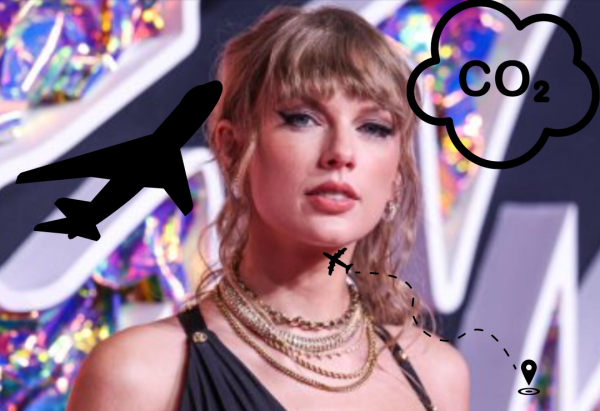‘Love, Simon’ proves gay representation matters
With teens questioning their sexuality daily, the film gives a sense of hope despite criticisms
Photo courtesy of 20th Century Fox.
The many posters for “Love, Simon” echo the book, “Simon vs. the Homo Sapiens Agenda,” cover in color and tone.
As hundreds of thousands of people flock to the movie theaters for yet another new film release, the name on the marquee is not the average ill-taste comedy flick or violent, fast-moving action adventure. This time around, it’s a new-fangled romantic comedy based off of a young adult book called “Simon vs. the Homo Sapiens Agenda” freshly re-named for the big screen, “Love, Simon.”
“Love, Simon” is a film centered on a teenage boy in high school who is fighting with his sexuality and dealing with the struggles that follow that. With everything else in his life being as idyllic as can be, Simon feels stuck and suffocated in his own secrecy, longing for someone to share his experience. Along the way he begins an online exchange via the school’s rumor blog with a boy contemplating the same things, and as Simon develops feelings for the mystery boy he’s been emailing, Simon is forced to confront his suppressed emotions and deal with all of the antics that come with that.
In a time in history where the LGTBQ+ community, while not without hurdles, is arguably the most liberated they’ve ever been, they are still loudly and widely fighting for representation in new and innovative ways. When “Love, Simon” was unveiled to the public, people were reasonably excited to see a new story showing much needed representation on the big screen. But with any film centered around a potentially hot button issue, there’s bound to be backlash. Naysayers are bashing on the movie left and right but not because of content. Demanding that the film itself is not “necessary” and questioning why the “gay narrative” needs to be pushed in their faces, the controversy continues to heat up as people fight back against these accusations.
In a more professional, informed presentation of criticism, a recent TIME article questions the relevance of the film. Musing on whether or not we as a society, have already surpassed the issues portrayed in “Love, Simon,” author Daniel D’addario says that “Kids like Simon, in 2018, already have a good shot of fitting in. They don’t need this movie.” But in fact, I’d like to argue the exact opposite.
It doesn’t matter how much we’ve already succeeded. In a society that perpetuates proverbial pats on the back to the most minimal of advances, we may be giving ourselves more credit than we deserve. Despite the fact that things have gotten easier, that does not diminish the necessity of representation.
“Love, Simon” is a perfect and bubblegum, fluff romance piece. Regardless of the “groundbreaking” potential some people expected from the film, the movie itself is a relatively baseline piece of work. The fact is though, that is OK. In fact, it’s probably the best part of this film.
The movie’s plot line isn’t realistic or particularly earth-shattering in nature. When dealing in films surrounding LGBTQ+ sexuality, we don’t need earth-shattering. We need normalcy, and that’s exactly what this film delivers.
Simon’s story of love, discovery and grandeur is not normal and not average, but it is also not fantastical. In Hollywood, romantic comedies are not unusual or uncommon. With their white, straight leads and their fanciful tropes of high school sweethearts, just-in-time arrivals before relationships end forever, or marriages when the film’s characters have known each other for about a week, these movies present a fantasy that’s so slightly likely that they promote hope.
Imagine struggling your whole life with an identity that you insisted was not yourself. Imagine presenting a facade to everyone else and denying a part of yourself, leaving a husk of who you know you could be. Now imagine sitting down in a darkly lit room, surrounded by people alike who have felt like outsiders their entire lives watching two boys fall in love in the purest, most innocent way possible. Who’s to say that this is not important, that that feeling of security and hope the movie brings those who may or may not still be struggling with all those feelings of guilt and hurt isn’t valid? That it isn’t absolutely necessary?
Not to mention this representation amongst those who have not experienced these things, groups of people that may never even contemplate a LGBTQ+ person’s experience, understanding for once how hard these emotions are to handle.
Now it is possible that none of these things happen. That someone walks into the theater, has an OK time, then goes home. I mean the movie isn’t without flaws. However, there is the mere possibility that this movie could present a normalcy that so desperately needs to be seen.
“Love, Simon” is not incredible. It is not something that even everyone needs to see. It’s a gushy, sugary sweet romantic teen comedy with corny lines and imperfect writing. But it’s beautiful. It’s real, honest, hopeful and full of life. The acting is amazing and each scene constructed well. The characters just happen to be gay, grappling with identity issues that almost every teen goes through in high school. “Love, Simon” shines with a bright, warm light making for an enjoyable movie that I would certainly watch again. But it’s also so much more than that.
Your donation will support the student journalists of West Linn High School. Your contribution will allow us to continue to produce quality content by purchasing equipment, software, and continuing to host our website on School Newspapers Online (SNO).

An experienced and ready music writer is joining the WLHSNow team. Katherine Stallard is a senior who writes for two music magazines outside of school,...


























![Game, set, and match. Corbin Atchley, sophomore, high fives Sanam Sidhu, freshman, after a rally with other club members. “I just joined [the club],” Sidhu said. “[I heard about it] on Instagram, they always post about it, I’ve been wanting to come. My parents used to play [net sports] too and they taught us, and then I learned from my brother.”](https://wlhsnow.com/wp-content/uploads/2024/03/MG_7715-2-1200x800.jpg)





![The teams prepare to start another play with just a few minutes left in the first half. The Lions were in the lead at halftime with a score of 27-0. At half time, the team went back to the locker rooms. “[We ate] orange slices,” Malos said. “[Then] our team came out and got the win.”](https://wlhsnow.com/wp-content/uploads/2023/10/IMG_2385-1200x800.jpg)





![At the bottom of the third inning, the Lions are still scoreless. Rowe stands at home plate, preparing to bat, while Vandenbrink stands off to the side as the next batter up. Despite having the bases loaded, the team was unable to score any runs. “It’s just the beginning of the season. We’re just going to be playing out best by June, [and] that’s where champions are,” Rowe said.](https://wlhsnow.com/wp-content/uploads/2024/03/IMG_3077-1200x900.jpg)












































































